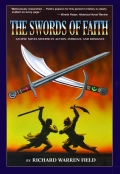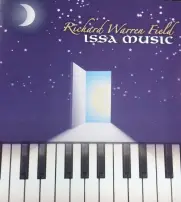Book Commentary/Review – The Study of Ethnomusicology by Bruno Nettl October 24, 2012
Posted by rwf1954 in book review, books, Bruno Nettl, ethnomusicology, music, The Study of Ethnomusicology.Tags: book commentary, book review, books, Bruno Nettl, ethnomusicology, music, The Study of Ethnomusicology
trackback
(This is the tenth of a series of commentaries about a series of books about the nature of music. The other commentaries of this series were about the books Musicophilia: Tales of Music and the Brain by Oliver Sacks, This is Your Brain on Music by Daniel Levitin, Music, the Brain and Ecstasy by Robert Jourdain, Music and the Mind by Anthony Storr, Good Vibrations/The Physics of Music by Barry Parker, Measured Tones by Ian Johnston, Exploring Music by Charles Taylor, Music and Mathematics: From Pythagoras to Fractals, edited by John Fauvel, Raymond Flood and Robin Wilson and Harmonies of Heaven and Earth: From Antiquity to the Avant-Garde by Joscelyn Godwin. This series has been triggered as a result of my rediscovery of the love of creating and performing music. There is definitely a spiritual connection to this rediscovery, evidenced by my recent release of “Issa Music” and my posts about mystical/spiritual aspects of the music of the progressive rock group Yes (The Poetry of (the Progressive Rock Group) Yes: Introduction to “The Revealing Science of God—Dance of the Dawn” from “Tales from Topographic Oceans” and The Poetry of (the Progressive Rock Group) Yes). This further relates to spiritual meditations with the theme of more than one path to God, and the possible coming together of both physics and metaphysics I and II).
Getting acquainted with the discipline of ethnomusicology was an inevitable step in this inquiry. Bruno Nettl’s The Study of Ethnomusicology has been a great way to catch a glimpse of this area of study, and gather information relevant to my own priorities. This inquiry started with the objective of studying music’s relationship to physics and metaphysics. This has led logically to a look at different music from around the world. Are there universal aspects to music, common among all cultures? Beyond that, are there aspects of music that are universal for all sentient creatures? That second question can only be answered very speculatively, but it still needs to be considered if we are thinking of music as a possible link of physics to metaphysics. If it is, we would expect other sentient beings to have this link available to them as well. So universal characteristics of music become important to this study. And looking at varied music from around the world, formed from different origins and traditions, becomes an integral part of looking at these issues.
Nettl, of course, spends much time discussing the ethnomusicology discipline. He did not write this book to address my concerns, admittedly outside of anything academically conventional. But the book is a comprehensive look at ethnomusicology. I feel as if I have a good idea of what drives the discipline, and what information I might expect from ethnomusicologists. This has led me to purchase another ethnomusicology textbook, World Music: A Global Journey, by Terry E. Miller and Andrew Shahriari. The book includes three CDs (and detailed listing guides) containing excerpts of music from all over the world, and a survey of music from region to region. I will create chapter-by-chapter blog posts of the areas studied, with comments on my takeaways from each. So I am expanding this series of posts again. I will continue to look at universality, commonality, among the different music excerpts. But as I am now gathering material for new music, with incredible computer technology that will allow me to create music unthought of a decade or so ago, I’ll be looking at how I might incorporate characteristics of each region’s music into my own musical vision.
Points I take from Bruno Nettl’s The Study of Ethnomusicology:
- Bruno Nettl specialized in Plains Indians and Persian music, two very different musical traditions, by location and characteristics!
- Nettl acknowledges that “an understanding of the nature of musical creation is a major issue in the world of music, a problem largely unsolved in scholarship.” The instinct to connect with the divine in some way, the metaphysical angle, needs to be considered. And, this consideration may be “unsolvable in scholarship,” at least conventional academic treatments.
- Nettl starts off seeming to be hostile to the “study of universals.” And this led me to think that though this discipline fascinates me, and the information ethnomusicologists bring to us is central to my own musical concerns and objectives, I would not have fit in with ethnomusicologists!
- But then Nettl goes on to discuss “three kinds of universals”: “Anything present in every instant of music,” “anything that is present in every musical utterance,” and “a third and somewhat more realistic approach, we ask where there is anything that is found in each musical system… whether there are any characteristics or traits present in all of them.” A fourth approach is also mentioned—“whether there are features shared not by all but by a healthy majority of musics.”
- Nettl does find among music around the world “the association of music with the supernatural. All known cultures accompany religious activity with music.” Obviously, I do not believe this is a coincidence.
- Nettl acknowledges that technology, especially computer power, is leading to the world becoming more “multimusical.” This is what I am engaged in at a practical, production level with “Issa Music,” released late last year, now with over 500 fans on Jango internet radio.
- Nettl addresses the idea of all “musics” seen as equal, with “Western” systems of harmony given no superior qualitative status. As a practitioner, not academician, I need not concern myself with this. I will adopt whatever moves me artistically, both from my own “Western” perspective, and from newly learned musical approaches from other places in the world.
- Yes, of course—hearing music is much more important than analyzing notation on paper.
- Nettl expresses frustration trying to establish firm analytical models to address varied music systems. I know for an academician, this is frustrating. But I accept that not everything is quantifiable—reduced to binary 1s and 0s, reduced to digital information on a spreadsheet. Some things in life, especially artistic things, are “analog.” Nettl acknowledges this later when he says “the literature of ethnomusicology is full of discussions of music that focus on what somehow seems salient or significant or interesting to the author.”
- He discusses whether studying music from other cultures is some sort of exploitation, almost like colonial exploitation. I find this absurd. I believe sharing cross-culturally is one of the greatest forces for good in our increasingly integrated world, a world of shrinking proximities. In my own efforts, I have no intention of hijacking original material from other cultures (or from any other people who have created music). I do intend to be influenced by sounds, by scales, by harmonies and by rhythms from everything I hear, including new music from my own “Western” culture.
- Nettl mentions the 1970s as the “period of greatest harmonic dissonance” in “Western music.” I experienced this personally as a conservatory student between 1972 and 1976. I concluded I had no future in academia as a “serious music”/”art music” composer because I did not adopt the idea of dissonance for dissonance sake as part of my musical vision. I still don’t. Maybe academia is less enthralled with dissonance now— frankly, I have no idea, and no concerns about what academia accepts anymore.
- Nettl, on page 253, says “time to show my colors. The fundamental function of music in human society, what music ultimately does, is twofold: to control humanity’s relationship to the supernatural, mediating between human and other beings, and to support the integrity of individual social groups.” Yes, Professor Nettl, on particularly the first part of your statement, we are in agreement.
- Nettl explains Islam’s often hostile attitude toward music by pointing out that Islam calls for a direct relationship between God and the individual. This means music is not needed to mediate between God and people, so is of lower importance. In fact, some Muslims consider music potentially dangerous. This seems absurd to me. Muslims study the Koran as an important part of their religion. No one talks about the Koran getting between the direct relationship between God and the individual. The Koran is an essential tool for facilitating that relationship. Music can also be such a tool.
- Nettl mentions tunings, referring to the circle of fifths. As I have discussed in earlier posts, this falls in the realm of physics, and leads to a possible conclusion on universal characteristics of music.
- Nettl says “…ethnomusicologists have largely taken this attitude: humans are very much alike, and they all have music.”
- Musical instruments “seem to be a cultural universal.”
So my journey through these topics continues. I have expanded this once again. There will be a set of blog posts, one at a time, about the different regions of the world as covered in World Music: A Global Journey. I will then discuss Leonard Bernstein’s lectures “The Unanswered Question.” I have the benefit of both the written versions of these lectures and viewing DVDs of the lectures during which he provides copious musical examples. After concluding with my discussion of Bernstein’s ideas, I’ll offer some conclusions of my own that attempt to take this topic from physics to metaphysics to music and to formulate some conclusions. I expect these conclusions to influence my own music-making over the coming years.



Comments»
No comments yet — be the first.